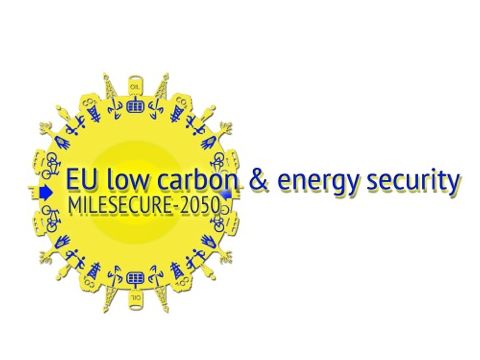American, European, and Arctic Perspectives on the Energy Crisis in Ukraine
- Presentation
- Date
-
- Location
- Dartmouth, United States
- Speech
-
Adam Pearson
This public lecture on the energy crisis in Ukraine was the major event during Adam Pearson's (Transatlantic Fellow at Ecologic Institute) five-week-stay at Dartmouth College. Over the extended visit, he also participated in and led discussions on related climate, energy, and arctic topics with academic groups and research initiatives on campus. The visit at Dartmouth College's John Sloan Dickey Center for International Understanding in Hanover, New Hampshire was supported by a grant from the Konrad von Moltke Fund.
Approximately 24% of European natural gas is sourced from the Russian Federation, half of which passes through Ukraine. Following the Russian annexation of Crimea, many of the NATO states have responded with sharp criticism and economic sanctions towards the Russian Federation. Amidst these escalating east-west tensions and ongoing natural gas delivery and payment disputes between Ukraine and the Russian Federation, some Europeans fear runaway natural gas prices, or at worst, a supply stoppage. The EU is therefore now pondering how to diversify its supply away from its Eastern provider of natural gas.
The European demand for natural gas (mostly in the heating and industrial sectors) is rising, demonstrating the need to consider backup supply options (or radical consumption changes). Building off of analysis in the "Transition towards Low-Carbon Energy Security" (MILESECURE 2050) project, Adam Pearson, Konrad von Moltke Fellow, argues that in the short-term, new "mega" renewable energy projects may not make a large impact in reducing the volume of natural gas needed in the electricity sector. Furthermore, the global liquefied natural gas market is less favorable to Europe than to East Asia, and the volume of domestic, accessible European natural gas through hydraulic fracturing is low. The cheapest way to address the challenge, he argued, is to focus on energy efficiency projects in the heating sector for the built environment, introduce novel and cheap "post-power storage" when possible, and develop local renewable electricity projects where feasible.
With regard to the arctic, "spillover" effects from the Ukrainian situation will likely be limited to impacts on military cooperation; yet will not dramatically change the dynamics in the Arctic Council. Contrary to the popular "arms race" narrative that the media presents with respect to the Russian Federation and the other arctic states, the biggest impacts on the arctic are likely to be economic.
Recent American sanctions have required American oil corporations in partnership with Russian energy companies to end their joint drilling projects in the arctic. These steps may hurt long-term economic working relationships between western and eastern energy companies, and may encourage the Russian Federation even more to concentrate on new energy cooperation projects with India and China.



